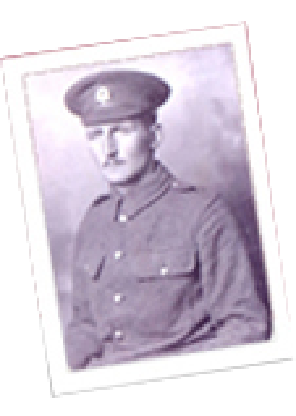- First Name(s):LlewellynAlbert
- Surname:EDWARDS
- Service Number:Unknown
- Rank:
Captain
- Conflict:WW1
- Service:Army
- Army Sector:Infantry
- Regiment:Royal Warwickshire Regiment
- Battalion:7th Battalion
- Former Units:None
- Date of Death:23rd March 1918
- Age At Death:23
- Place of Death:Unknown
- Place of Burial:Savy British Cemetery, France, Grave I. O. 1.
- Place of Birth:Casablanca, Morocco
- Home Town:Unknown
- Casualty's Relatives:
Son of the Reverend J.J. and Mrs Edwards, of Berrow Vicarage, Tewkesbury, Gloucestershire
EDWARDS Llewellyn Albert Is Named On These Memorials
Notes About The Memorial(s) Listed Above
Berrow St Faith’s Church with the information: Capt. R. War. Regt.
Further Information About EDWARDS Llewellyn Albert
Appears in the Worcester/Worcestershire Roll of Honour Book for army casualties located in Worcester Cathedral, Captain. The Royal Warwickshire Regiment.
Llewelyn Edwards was born in 1894. He attended Malvern College as a Day Student from September 1908 to 1913.
Malvern News 8th June 1918:
Capt Ll. A. Edwards, previously reported wounded and missing, is now reported killed. He was an Old Malvernian, and a scholar at Christ College, Cambridge and son of Revd J.J. Edwards.
Llewellyn Edwards was the elder son of the Reverend J.J. Edwards. He was educated at Malvern College and Christ Church, Cambridge. In March 1916 he was gazetted from Lieutenant to Captain in the Royal Warwickshire Regiment. At that time his father was Curate-in-Charge at St Andrew’s, Malvern Common. The Malvern News of 27th May 1916 reported that Captain Ll. A. Edwards was now at the front; a further report in the Malvern news of 29th July 1916 stated that Captain Ll. A. Edwards had been wounded and was in a London hospital. Ten months later in May 1917 the Malvern Gazette reported that Captain Ll. A. Edwards, Royal Warwickshire Regiment had returned to the front to resume command of the same company he was leading when he was severely wounded during an attack in July 1916. After almost a year at the front, Captain Ll. A. Edwards was reported wounded and missing in April 1918. In June 1918 the Malvern News reported that he had been confirmed as killed in action.
Malvern News, 22nd June 1918:
Captain Llewellyn Albert Edwards, Royal Warwickshire Regiment, previously reported wounded and missing, now reported killed in action on March 22nd at 11pm, was 25 years of age, and the elder son of the Rev. J.J. Edwards and Mrs. Edwards, Berrow Vicarage (the Rev. J.J. Edwards was formally Curate-in-charge of St Andrews Malvern Common.) The deceased officer obtained a scholarship at Malvern College from Dr Douglas’ school, Malvern Link, and gained an open scholarship at Christ’s College, Cambridge, where he had been in residence one year when the war broke out. He was a member of the Malvern and Cambridge O.T.C. In October 1914, he was commissioned, was gazetted Lieutenant the following December, and Captain in March 1916. He was severely wounded on July 19th, 1916, and returned to the front in April 1917. Capt. Edwards was recommended for honours for the manner in which he conducted his men in the retreat on March 21st and 22nd.
His colonel writes – ‘Your son was beloved by all. My loss is great. He was one of my best officers. No trouble was too much if it was for the comfort or efficiency of his company. He was a gallant man, and I had the greatest admiration for his niceness of character. I have lost a fine officer and good comrade.’
The Chaplain writes – ‘His death has cast a gloom over the whole battalion. He was a universal favourite with officers and men alike. His cheery manner and brightness will be sadly missed. It was my privilege to know your son very well. He was looked up to by all and was a splendid soldier, who always thought of himself last. He will be sadly missed. Always regular at his Communions and always endeavouring to do a good turn to someone. I always looked upon him as one of the stalwarts of this Battalion. Your son was a great friend of mine, and in fact all the Battalion looked upon him as a magnificent type of an English officer’.
A brother officer writes – ‘I am the only officer left in his Company and was with him where he was mortally wounded. All day previously he had shown great cheerfulness and disregard of danger, and was forever walking up and down urging and cheering on the men. Even when he was wounded his last words to me were, ‘Look after the Company, and keep down off the top of the trench.’ These words were just characteristic of him – a way of thinking of others before himself. A very good officer, liked immensely by his fellow officers, and loved by all his fellow men’.
Another officer writes – ‘To my own knowledge he lived a blameless and religious life. He died like a gallant gentleman, and his life was an example to us all’.


